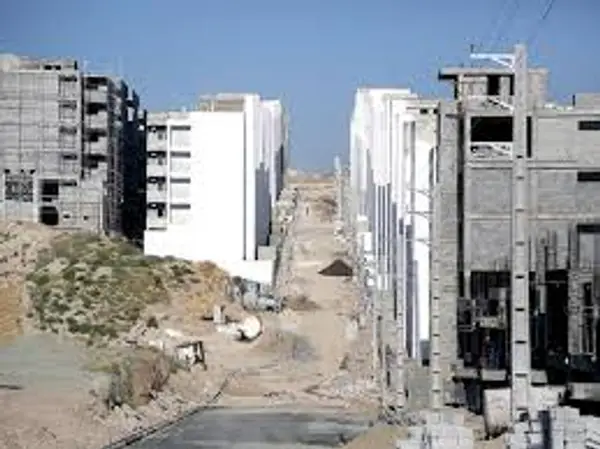A member of the Iranian Parliament's has pulled back from an assertion that officials were in talks with Chinese companies over building affordable housing.
Eghbal Shakeri, who is a member of Parliament's urban development committee, was quoted by Tasnim news agency on Monday that the ministry of roads and urban development was discussing with Chinese operators their possible involvement in President Ebrahim Raisi's (Raeesi) ambitious housing plans in order to avoid the delays in building projects under previous administrations. The urban development minister has also hinted that foreign companies, including those from China might be invited to bid on the housing project.
Iranian Students News Agency Thursday reported that Shakeri, who is also a member of the ministry's housing council, had now explained that the negotiations he referred to were "related to the ministry's own works," and not to Raisi’s scheme for building one million affordable units for sale every year.
The economic website Tejarat news last month suggested Raisi’s plans would need 10 trillion rials ($40 million) daily, or $15 billion annually, which is more than Iran’s oil export revenues last year. The World Bank noted this month that despite slight economic growth “poor economic activity, partly due to US [United States] sanctions, low oil revenues and higher recurrent and COVID-19 related expenditures” meant that Iran’s government faced a widened fiscal deficit.
China is easily the world’s biggest lender for development projects, with Chinese banks committing over $462 billion in development finance to 93 countries between 2008 and 2019, including building projects from Hong Kong to north America. China itself has had a massive program of social and affordable housing.
But Iranian private-sector operators and some media have rejected Chinese involvement, arguing that both resources and technical know-how are available in Iran. Speaking to the economic website Eghtesad News Wednesday, Iraj Rahbar, deputy chairman of Iran's Housing Companies Association, said Chinese companies could not expedite matters.
"The problem of delay in delivery [by Iranian companies] results from cash flow issues, not their technical and engineering incompetence in comparison with the Chinese," he said. Rahbar argued that the government's failure to pay contractors on time would hinder projects whether domestic or Chinese. "They will just abandon the work," he said.
Rahbar cited the Tehran-North Freeway project to connect the capital to the Caspian Sea region through the Alborz mountains. "We used Chinese companies but they abandoned the project after 20 years and left Iran," he said. "Sadly, we haven't learned a lesson from such cases."
The new minister for urban development, Rostam Ghasemi, has also suggested that Iran has everything needed for a large housing program − land, building material and engineering. On Thursday Ghasemi said money was also available, with 3,600 trillion rials (about $14.5 billion at current exchange rates) to be offered in loans to buyers in the first year.
Land would be provided free, the minister said, with the government also investing in infrastructure and amenities, and offering discounts on building tax.
While most principlist media and politicians welcome Raisi's plan, critics disparage it by citing the Mehr housing scheme of President Mahmoud Ahmadinejad (2005-13), when oil prices were far higher than today and Iran, especially until 2011, was under far less stringent sanctions.
Three million units were built under the plan during Ahmadinejad’s presidency and a further 1.3 million under President Hassan Rouhani (2013-21), although Rouhani in 2014 conceded the scheme had boosted inflation.
In a devastating earthquake in western Iran in 2018, Mehr apartment buildings sustained more damage than other constructions and President Hassan Rouhani called for an investigation . Many new owners complained about problems, including a lack of infrastructure and amenities like public transport and schools near new apartment blocks, often built away from cities and towns.
